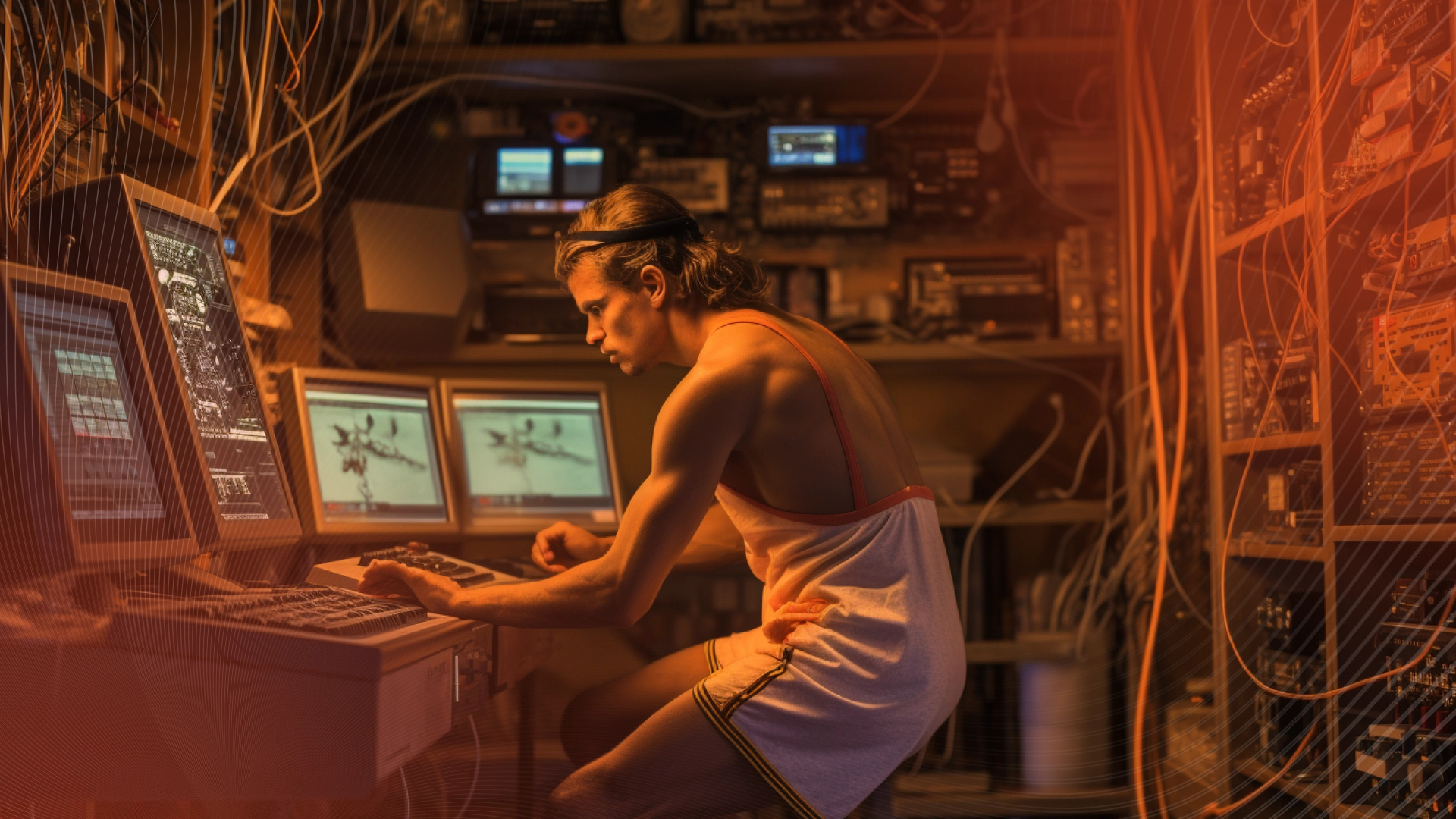Productivity
You're a Computer Athlete
You're likely a professional computer user – you should behave like the athlete that you are

Listen, you spend a massive chunk of your day on your computer and get paid for it, that makes you a professional computer athlete. So, why not train like one? Your body and brain go through the same strains and stresses as top athletes, so it's time to start treating your work as the athletic feat it is.
I discussed this idea on an episode of the Ultraworking Podcast a couple of years ago, and re-listening to it I thought it held up remarkably well. Since then much of what I talked about then has penetrated the mainstream much more, which is awesome. So let's think about the different dimensions in which we can treat ourselves and our work like athletes.
Computer Athlete Skill 1: Physical strength.
One of the biggest challenges of spending a lot of time in front of a computer is the risk of developing "nerd neck" or RSI (repetitive strain injury) issues. You can prevent that with just a little bit of physical training for your upper back and forearms. Do some face pulls, shoulder shrugs, wrist extensions, or tricep push-downs and you're good. Also make sure you watch this video for a detailed guide on tackling this aspect.
Computer Athlete Skill 2: Sleep.
Just like any athlete, if you're working at a computer all day you need sleep to perform well. Much has been written about how to optimize sleep, so I'll only give a very high-level summary and then link you to the authoritative sources. To dial in your sleep: go to bed at the same time each day and stop eating 2-3 hours before your bedtime. Block blue light 2-3 hours before as well, either through glasses or colored lights, and generally dim the lights before bedtime. Keep your room cool (~17C), dark, and well ventilated. If you want the actual science behind all of this and much more advice, listen to these episodes of the Huberman Lab Podcast: Sleep Toolkit: Tools for Optimizing Sleep & Sleep-Wake Timing, Using Light (Sunlight, Blue Light & Red Light) to Optimize Health
Computer Athlete Skill 3: Typing
Just like a football player needs to know how to throw a football, a basketball player needs to know how to dribble, and a tennis player needs to know how to serve...you need to know how to touch type. What you really want to do is minimze the time delay between you thinking something and it being on the screen. Not only will that increase your speed in writing, but it will also make you feel comfortable using shortcuts in the apps you use – which is a huge factor in being productive.
Now some people say that "when I'm programming typing is not the constraint, it's know what to type", which...okay. But I learned to code before I could touch type, and let me tell you: typing is a constraint. Now there are obviously diminishing returns at some point, but looking around the office and observing people in cafes... most people aren't hitting those yet.
If you want to get started, watch this video by Ali Abdaal on typing.
Computer Athlete Skill 4: Nutrition and Hydration
Any athlete competing watches closely what they are eating and how it affects their performance. I'm no authority on what you should eat, and I frankly don't care if you're vegan or carnivore. What I am certain about is that you should observe yourself and watch how certain foods make you feel. What matters is not ideological adherence to any one diet, it's about figuring out what works for you. In my experience eating a huge amount of carbs for lunch means I can kiss my afternoon productivity goodbye – which is why I generally try to avoid rice, pasta, and pizza for lunch. But again: the point is not to say "do what I do" but "observe what works for you". For more detailed, science-based guidance on this check out these HubermanLab episodes: Dr. Layne Norton: The Science of Eating for Health, Fat Loss & Lean Muscle, Dr. Chris Palmer: Diet & Nutrition for Mental Health
Computer Athlete Skill 5: The Mental Game
Figure out what you need to do to be happy and focused. The first step towards that is to track how you're feeling. This has two benefits. On a tactical level you can switch activities based on how you're feeling more easily if you do regular checks. Yesterday I wasn't feeling energetic enough to write or record YT videos – so I switched to coding and suddenly had a productive 2h session. On a more long-term level, recording your mental and energetic state also helps you spot patterns. Always feeling off on days where you have one meeting in the afternoon, but feel fine when it's multiple meetings in a row (like me)? Great, try to schedule accordingly. I like to track this mostly through one factor, the french word "élan" for "spirit, zeal, ardor". I rate my élan from 1 to 3 – that's coarse, but useful enough.
To sum this up: taking an athletic approach to our work can help us perform at our best and prevent the negative effects of spending long hours in front of a computer. There are a couple of behaviors and skills that are worth using and developing, like physical strength, proper sleep and nutrition, taking care of the mental game, and of course optimizing the interface through which you interact with your computer: typing.
Related Topics
Join the Cortex Futura Newsletter
Subscribe below to receive free weekly emails with my best new content, or follow me on Twitter or YouTube.
Join and receive my best ideas on productivity, learning, and decision making
